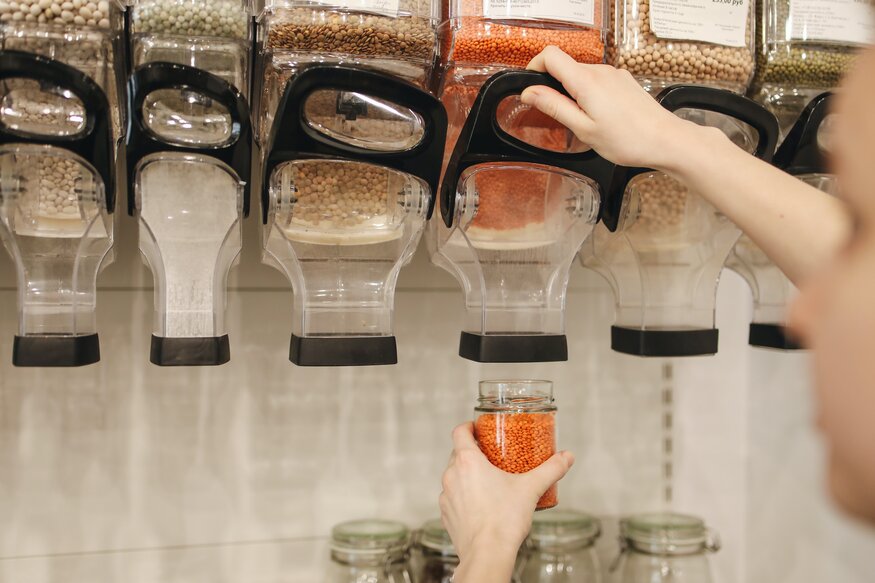Sarah Ritzen’s journey into zero waste and sustainable living
Sarah Ritzen is a Human Design Expert who’s been passionate about sustainability from a young age. Now 27, she became a vegetarian when she was only 11 and has been eating mostly vegan for the last couple of years. During her teenage years, Sarah started learning more and more about sustainability and the environment, and the more she learned about it, the more passionate she became.
At the beginning of her journey, Sarah was mainly focused on zero waste, but soon, her interest pivoted to the overall impact we humans have on the environment. She explains: “Many people don’t know that an organically grown cucumber that’s wrapped in plastic, for example, is still better for the environment than a non-organically grown cucumber without packaging. When you look at the entire process, organically grown products are more sustainable, even when they’re wrapped in plastic.” This insight completely changed Sarah’s perception of sustainability.
Of course, buying organically grown products and turning off the tap while brushing your teeth is great, but Sarah wanted to do more: “I started buying as little new things as possible and stopped buying things I don’t really need. Whenever I do need to buy something new, I make sure to research where it comes from and the impact it has on animals and the planet. The packaging of my shampoo bar, for example, is made of sugarcane, which is sustainably made and easy to recycle. The shampoo bar itself has no chemicals – I always make sure to check the ingredients as well.”
Sarah doesn’t own a car either, and she has solar panels and a hot water pump at home, which are both very sustainable. When it comes to using bleach, she has a nice alternative too that she learned from her father: “I use baking soda combined with vinegar. On the contrary to bleach, which goes into the sewer and then into the earth when you flush it down the toilet, baking soda and vinegar don’t have a negative impact on the planet and work too. These are cheap, natural products without any chemicals – so it’s a win-win situation!”
Living sustainably is not always easy, though, and there are quite some challenges Sarah has to face. “I find it quite difficult to speak out my preferences to people who are not that close to me. My in-laws, for example, know I don’t eat meat, but they don’t know I am vegan, which is challenging when it comes to cheese and eggs. Besides this, one of the things I struggle with the most is taking the plane. I refused to fly for many years because of the impact it has on the environment, but I have become a little less strict about it now. Although I fly as little as possible, I allow myself to take the plane every once in a while. I do pay for my CO2 compensation, make sure to stay at the destination as long as I can, and use the bike, train or bus once I arrive.”
Feeling inspired by Sarah’s story? Here are some of her best tips:
The best tips I can give is to eat less meat and animal products, but also to buy less new stuff. If you can buy something second hand, do it – that’s way better for the environment.
Sarah’s book recommendations:
– The hidden impact by Babette Porcelijn




0 Comments